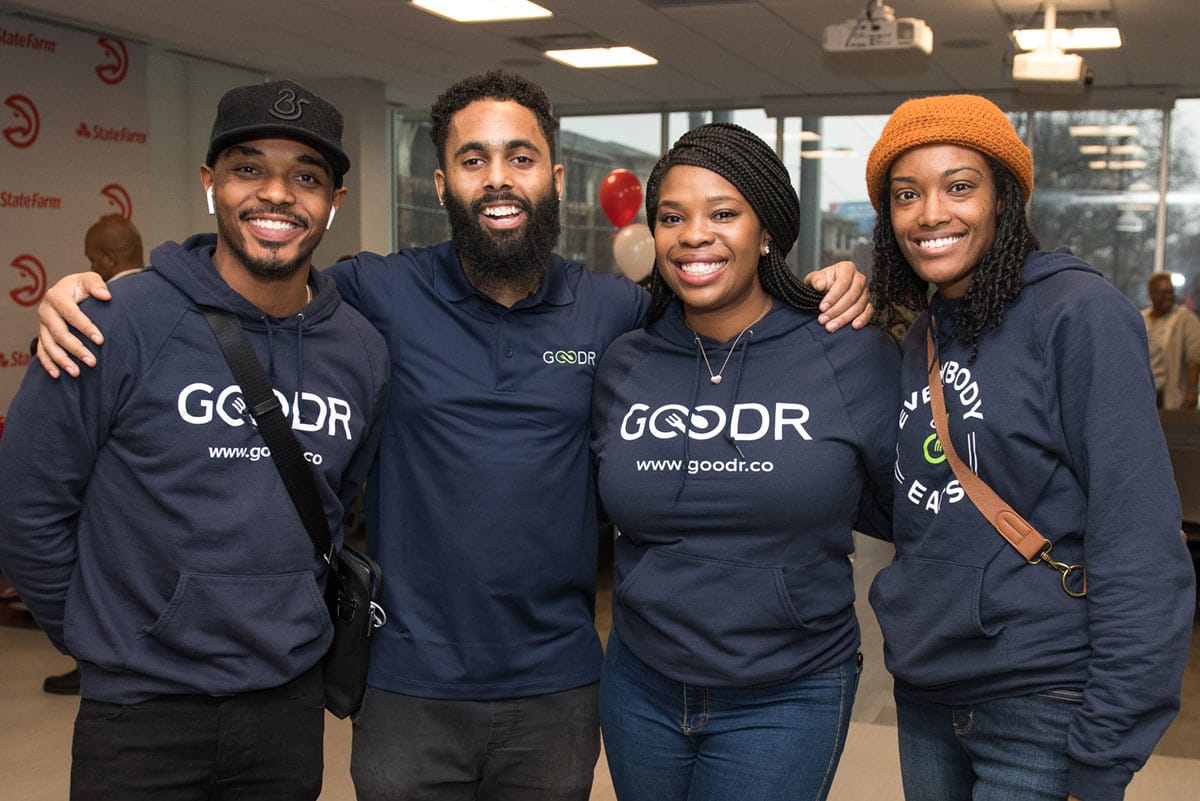The other day I heard from a co-worker on how a US based organization, Goodr is directing wasted food from restaurants to satiate the hunger of the underprivileged. Led by Jasmine Crowe, the founder of Goodr, the organization has managed to attend to the hunger pangs of numerous people.
Since January 2017, Goodr has helped businesses and restaurants in Atlanta deliver their surplus food and has diverted over 1 million pounds of food from going to the landfills. Goodr services a variety of businesses across Atlanta, including Hartsfield-Jackson Airport, Ponce City Market, Georgia World Congress Center and Turner Broadcasting Systems.
Jasmine came up with the idea of Goodr after she witnessed her friend having a tough time with food security issues.By that time, Jasmine was working as an independent philanthropy consultant while helping to donate food to local homeless shelters.
“Having experienced that first hand really shifted perspective for me, because for years I was feeding members of our homeless community. I didn’t understand that the face of hunger was readily changing“, added Crowe.
With the motto ‘Wasted food is wasted money’ and powered by blockchain technology, Goodr provides a secure ledger that tracks an organisation’s surplus food waste from pickup to donation, delivering the competitive advantage of real-time social impact reporting analytics. By providing data about the types of surplus food Goodr app users produce, the company’s goal is to eliminate surplus food. Via the app, businesses signal when they have excess food to deliver, package it, and track it as it is sent to local non-profits.
The company uses blockchain to keep a data ledger for their clients of how much food businesses waste, and where they might be losing money. Data collected by the company includes information on what food gets wasted the most, community connections and environmental impacts.
The Goodr model aims to provide a triple-win solution by improving an organization’s bottom line through charitable tax donations, reducing its greenhouse emissions and getting its edible surplus food to local communities in need.
“At Goodr, we believe that hunger isn’t a scarcity issue. It’s a logistics issue. Even with many social programs that aim to end hunger, the current food supply chain ecosystem in the United States has failed to solve this problem which has grown into a national epidemic. Every year in the United States, we waste over 72 billion pounds of edible food, yet 42 million people are suffering from food insecurity. At the same time, over $40 billion in tax benefits for businesses goes unclaimed annually. We believe the solution is simple: Feed more, waste less” says Jasmine.
Currently, Goodr app is available in six others cities: Los Angeles, Chicago, Miami, Washington, D.C., Seattle and Philadelphia. In addition to the GWCC, Goodr has joined hands with the Chicago convention center, as well.
“Our hope is definitely like most social good companies, is that we’re able to work ourselves out of business. But one of the things that we do see is that there’s really not a lot of predictability in large scale food service.” says Crowe.
On being asked about the future endeavours of Goodr, Jasmine says that Goodr is working to hit their first goal of being in 20 cities by the end of 2020. Their primary focus is to make food rescue and donation a part of every city and state by partnering with state and municipal governments to write legislation on food waste.

